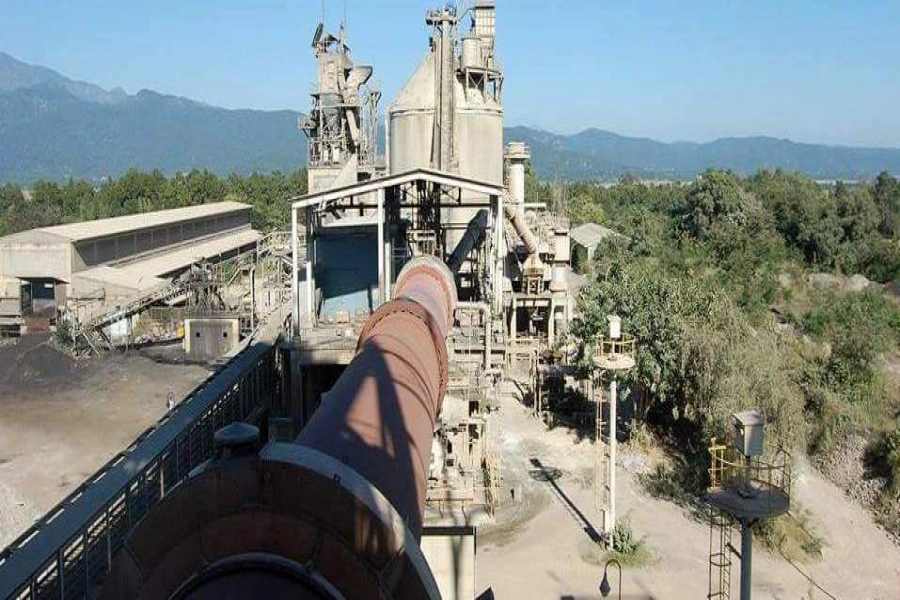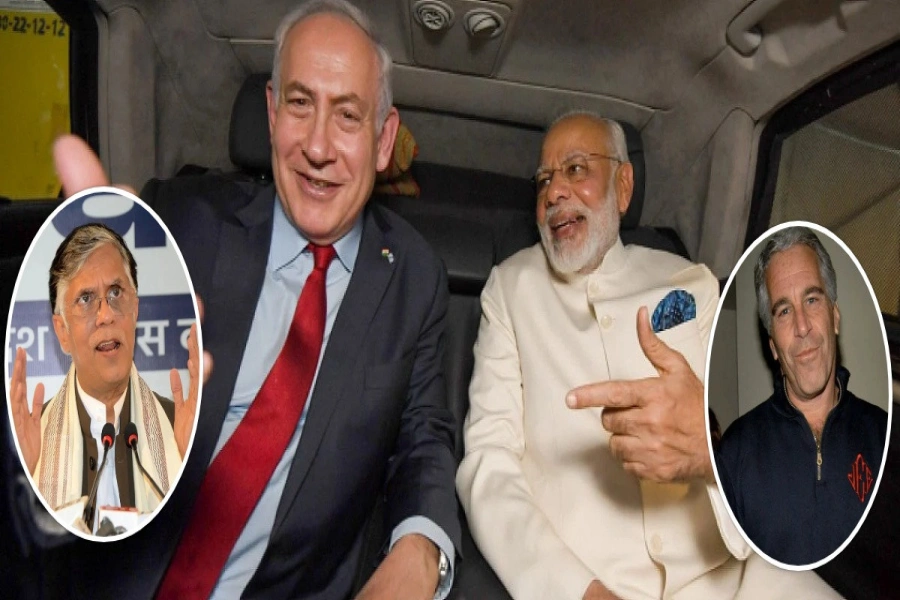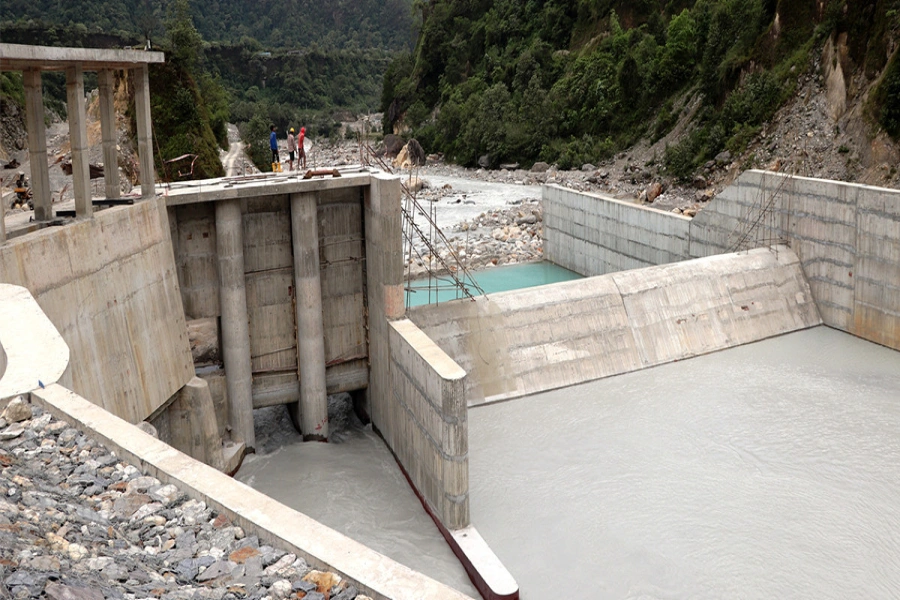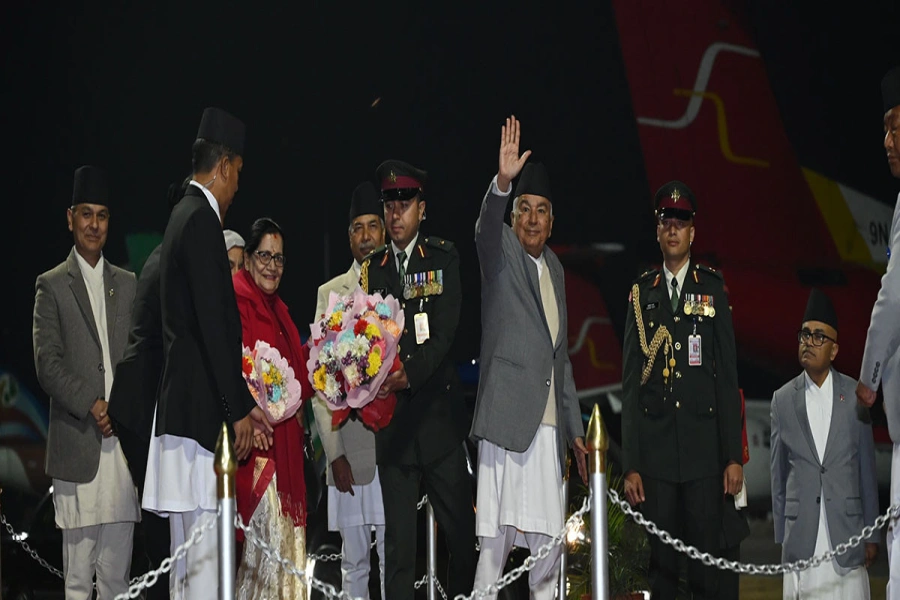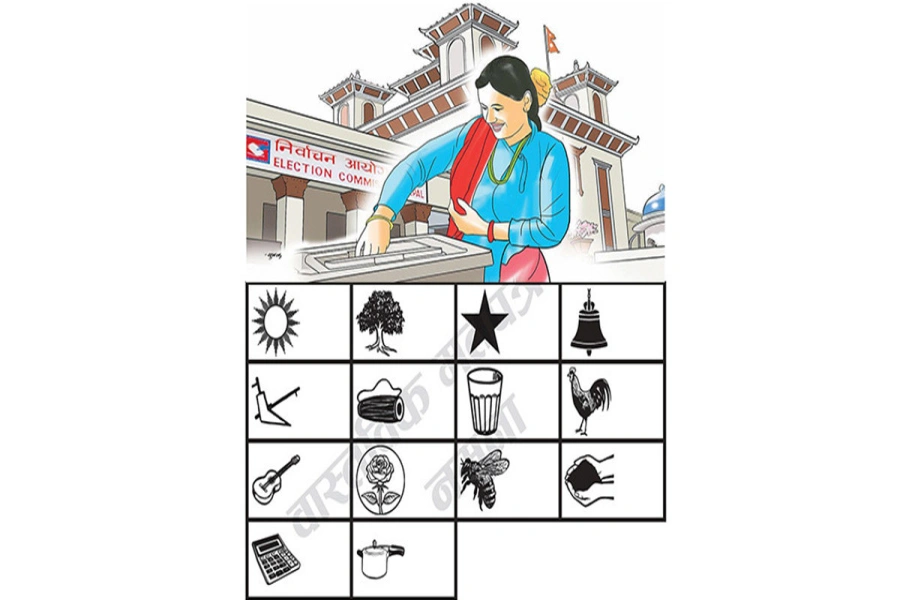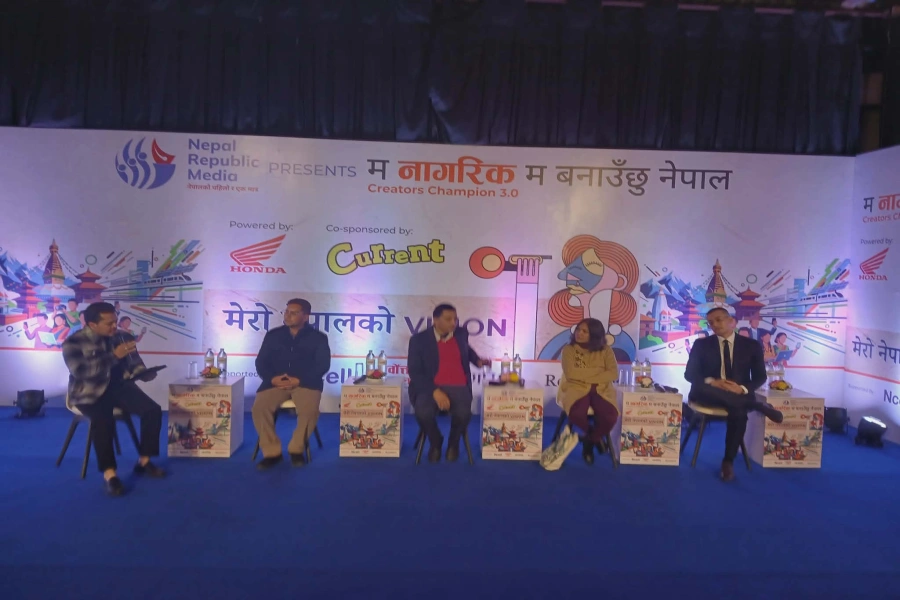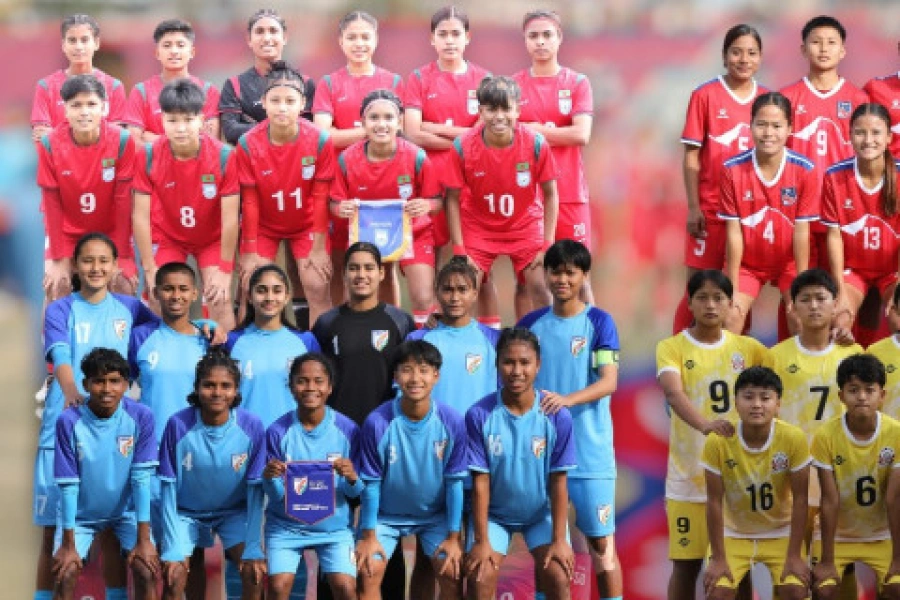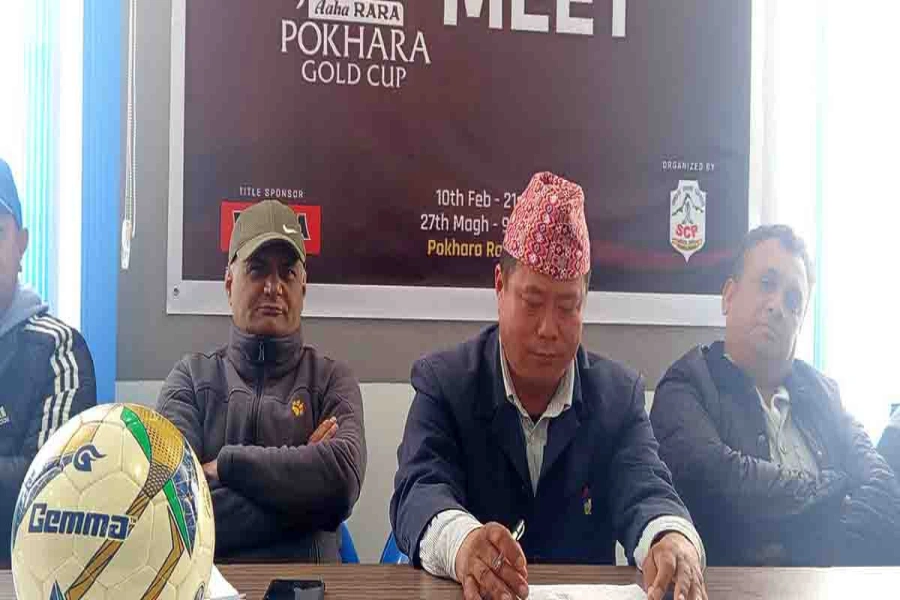‘Raat Chirnya Bhanu’ or The Life of Bhanubhakta is currently being staged at Shilpee Theatre in Battisputali, Kathmandu. This play that is being produced collectively by Lok Drishti Theatre and Aarambha Natya Samuha will be staged till December 2, 2017 at the same venue.
The Week caught up with a few cast and crew members to get some behind the scene details.
Representing our country
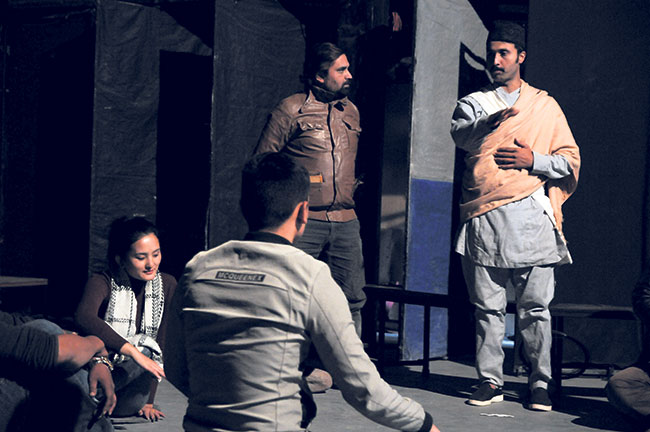 Prem Poudel, president of Lok Drishti Theatre, opened this platform to represent Nepal’s rich culture aboard with the help of dramatics. “While participating in various workshops and drama competitions abroad, I realized that most countries do not know about Nepali culture. Unfortunately, many people in Asia itself think Nepal is a part of India,” says Poudel adding that he decided to form a theatre group to represent Nepal and its culture in international platforms.
Prem Poudel, president of Lok Drishti Theatre, opened this platform to represent Nepal’s rich culture aboard with the help of dramatics. “While participating in various workshops and drama competitions abroad, I realized that most countries do not know about Nepali culture. Unfortunately, many people in Asia itself think Nepal is a part of India,” says Poudel adding that he decided to form a theatre group to represent Nepal and its culture in international platforms.
Also, previously most of the plays performed by our theatre houses were merely copied. Nepali identity was almost lost in dramas performed in and outside Nepal. Poudel wanted to create a space where dramas reflected the culture, language, and identity of Nepal.
Apart from that, this theatre group also portrays the state of various marginalized communities through their plays. “We believe drama can be a very effective tool to create awareness about various social issues. So our productions are also aimed at improving our society,” says Poudel.
Nepali poet writes about Lu Xun, China’s greatest modern writer

Zealous director and scriptwriter
“Writing this script on Bhanubhakta Acharya has been a long and difficult journey. Directing this play, on the other hand, has been equally challenging,” says Prabhakar Neupane, director and scriptwriter of the play ‘Raat Chirnya Bhanu’.
“Bhanubhakta Acharya is worshipped in our country as he is the pioneer of Nepali literature. From our younger generations to the older ones everybody has an image of Bhanubhakta set in their minds. Our biggest challenge was to put up a show without disturbing that image. From clothing to culture, everything has to be meticulously written and represented,” says Neupane.
The play is primarily based on three stages of Bhanubhakta’s life: His childhood, youth, and old age. It also focuses on a character named ‘Ghasi’ who has been mentioned a few times in Bhanubhakta’s literature. Ghasi, according to many, was the primary source of inspiration for Bhanubhakta and his literature. This skit revolves around how Ghasi has not been given the recognition he deserves.
One of the major challenges faced by Neupane while writing the script was the lack of literature. “I visited many museums and read many books. But there are many facts about Bhanubhakta Acharya’s life that have not been proven. Our sources to create this play involved old movies and oral history as well,” says Neupane.
Passionate protagonist
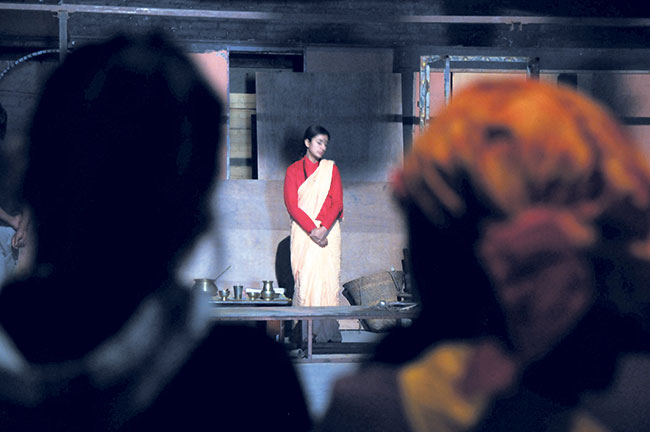 Prakesh Sindhuliya says that he was a little apprehensive about this role when it was given to him. “Bhanubhakta Acharya is a legend and I was unsure if I was capable of portraying him,” says Sindhuliya. “Add to that, Acharya is not an imaginary character that I can build upon. I had to read about him, understand the prevalent traditions, language and change my entire lifestyle for this play,” he adds.
Prakesh Sindhuliya says that he was a little apprehensive about this role when it was given to him. “Bhanubhakta Acharya is a legend and I was unsure if I was capable of portraying him,” says Sindhuliya. “Add to that, Acharya is not an imaginary character that I can build upon. I had to read about him, understand the prevalent traditions, language and change my entire lifestyle for this play,” he adds.
“This character was extremely challenging for me as I had to learn a new form of language, imbibe a different culture and portray myself as an ideal man who occupies a special place in the hearts of many Nepalis,” he says. The play is written in Khas language which was predominantly used by Bhanubhakta.
After a month-long practice session, Sindhuliya is confident that he has been able to reach the depth of this character which he is excited to project on stage. “After a lot of hard work, now I guess I can talk, walk, speak, and feel like Bhanubhakta Acharaya,” he says.
Putting together a great show
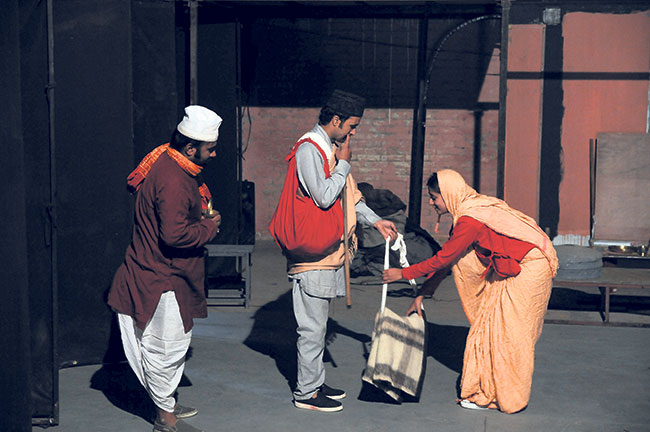 There are also various other characters that make this play possible. Although all of them belong to different age groups and don’t have similar interests, as a team they seemed to be working very efficiently.
There are also various other characters that make this play possible. Although all of them belong to different age groups and don’t have similar interests, as a team they seemed to be working very efficiently.
“I have been working in this industry for a long time but this play is very special to me because I’m a lover of Nepali literature. It is an honor to be a part of this play which gives a different perspective on Acharya’s life,” says Basudev Khanal, who is playing the role of Ghasi in the play.
Melina Gurung, a house help in the play, on the other hand, is extremely excited because it is her first performance on stage.
“As Nepalis we all have read about Bhanubhakta but we do not know many interesting aspects of his life. This play has various anecdotes about the poet’s life that will be exciting for the audience,” says Ramesh Dahal, who portrays the character of Bhanubhakta’s grandfather in the play. “I have learnt a lot about Bhanubhakta from this play,” he says adding that he believes dramas can play a great role in contributing to Nepali literature and that this play is one such attempt.
“We are sure our audience will enjoy and love the rich literature, culture, and heritage that will be portrayed through this play,” concludes Dahal.




